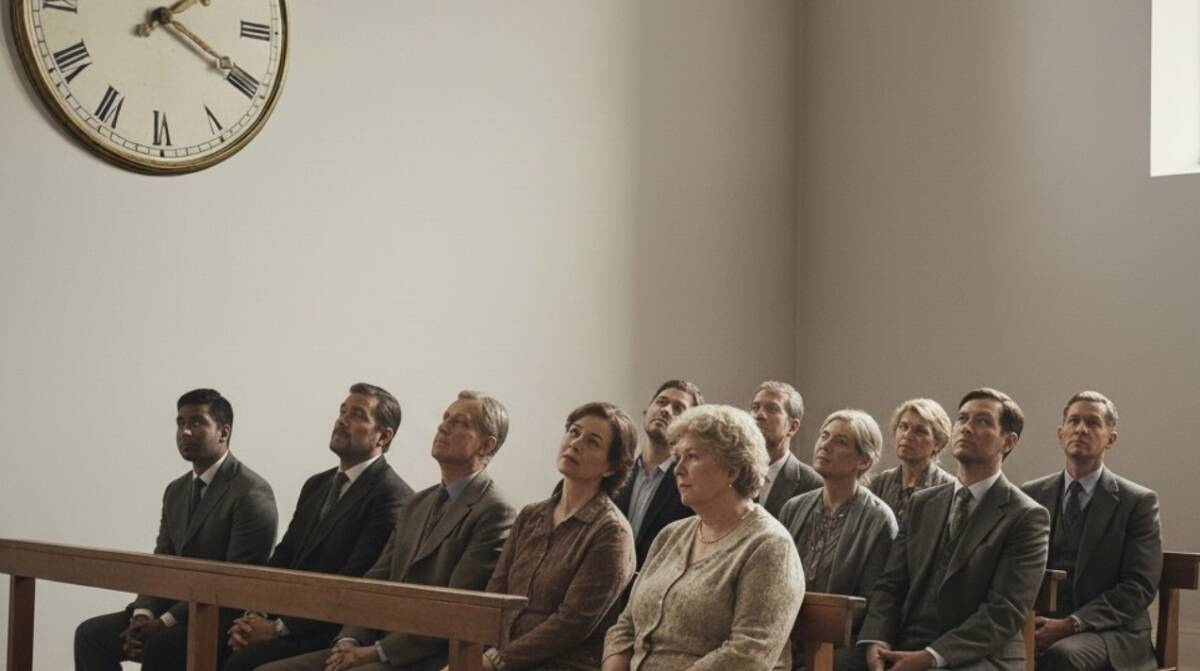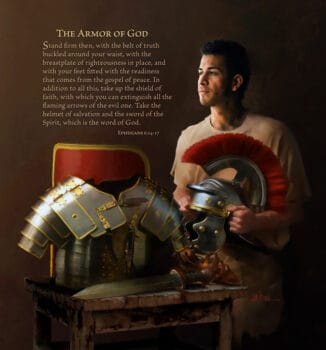Penang Adventist Hospital recently dedicated two new facilities designed to improve accessibility and provide specialized care for patients and the community. The hospital launched the Adventist Bakery Express, a drive-thru and pick-up concept off… Source: https://adventist.news/news/penang-adventist-hospital-dedicates-new-facilities-to-strengthen-patient-care-and-community-service
God First: Your Daily Prayer Meeting #1132
"If you believe, you will receive whatever you ask for in prayer" (Matthew 21:22, NIV).
Tag someone in need of prayer, and kindly share your prayer requests here:
https://wkf.ms/3DBuapQ Source: https://www.youtube.com/watch?v=tYd8MHUzs3k
Reaching the World for Christ
Radio can reach places where missionaries cannot. AWR360° broadcasts the three angels’ messages to the hardest-to-reach places, bringing hope and changing lives every day. Learn more at https://awr.org. Watch the entire story here: https://youtube.com/watch?v=EQNww5A2FrM #AWR360 #BroadcastToBaptism Source: https://www.youtube.com/shorts/32wWtvAyB90
Voice of Hope Radio Expands Coverage in Moldova with Four New FM Stations
On March 12, 2025, the Moldovan Broadcasting Council granted the Voice of Hope radio station permission to use four new FM frequencies in Comrat, Cimislia, Rezina, and Sângerei. Following months of technical preparation and equipment installation … Source: https://adventist.news/news/voice-of-hope-radio-expands-coverage-in-moldova-with-four-new-fm-stations
Can I pray for you? For you who have no strength to fight
We pray for you who feel done, tired of fighting, tired of pretending. May God hold what you can’t anymore. May new strength rise from within. And may you feel the truth: even when you have nothing left to give, grace is still enough. Source: https://www.youtube.com/shorts/8_SqkiHtSiY
New Office. New Chapter. Renewed Mission – Constructing the New British Columbia Conference Office
Join us on the inspiring journey of the new British Columbia Conference Office. From the history of our original building, to the groundbreaking, construction, and final move-in, this story captures every milestone along the way.
Experience stunning time-lapse footage of the build, moving day moments, and the transformation of the old site into a fresh space for mission. This is more than a building—it’s a symbol of growth, renewal, and a deeper commitment to the Seventh-day Adventist Church’s mission in British Columbia. Official Opening: September 26, 2025
Abbotsford, BC To everyone who prayed, supported, and contributed—thank you. Together, we are building for mission in BC. Subscribe for more updates, stories, and mission highlights from the BC Conference. Learn more: https://www.bcadventist.ca #BCConference #NewBeginnings #Adventist #Mission Source: https://www.youtube.com/watch?v=76pMkKqRxZA
SATIRE: How Ready Are You for the Time of Trouble? (Take This Quiz to Find Out!)

So you’ve heard about the Time of Trouble your whole life. The hiding in the mountains, the food shortages, the “only the faithful will stand” drama. But let’s be real—are you actually ready? Take this super-scientific quiz to find out! ⸻ 1. Your phone dies unexpectedly. What do you do? A. Panic. Then panic again. […] Source: https://atoday.org/satire-how-ready-are-you-for-the-time-of-trouble-take-this-quiz-to-find-out/
Wednesday: Be Strong!
Daily Lesson for Wednesday 1st of October 2025
Read Joshua 1:7-9. Why did the Lord need to emphasize twice to Joshua that he had to be strong and courageous?
The task set before Joshua seemed to involve overwhelming challenges. The walls of the Canaanite cities appeared unassailable, and the population of the land was trained for battle. In contrast, the Israelites, simple nomads, did not possess even the most primitive war machines to take on the fortified walls. History tells us that not even Egypt, the superpower of those times, was able to gain a steady foothold in Canaan.
Yet, the summons to be strong and courageous is not related here only to battle morale or to war strategies. Courage and strength are needed to stay faithful to the Torah and its specific requirements, which defined Israel’s covenant with Yahweh.
Read Ephesians 6:10-18. Although we are not required today to participate in military combat, how can we apply the words of encouragement given to Joshua in our daily spiritual struggles?
Today, in fulfilling the mission entrusted to them by Christ, Christians face similar challenges to those of Joshua; that is, they are required to wage war against their own sinful tendencies, against the principalities, powers, and rulers of the darkness of this age, and against the hosts of wickedness. Like Joshua, they also have the assuring promise of Christ’s presence: “ ‘I am with you always, even to the end of the age’ ” (Matthew 28:20, NKJV). As the supporting presence of the Lord was enough to expel the fears of Joshua, so it should be sufficient to banish our doubts and anxieties today.
The challenge for us is to know the Lord well enough to trust in Him and His promises to us. And that is why, more than anything else, we need that personal relationship with Him.
|
The crucial question for us today is not different from that faced by Joshua. How can we stay true to what the Word of God says, even when it is unpopular or inconvenient to do so? |
 (0)
(0)SATIRE: An Open Letter to Adventist Clockwatchers

We see you. Every Sabbath. You think you’re being subtle, but no. Your eyes flick up to the wall clock like it owes you tithe. Then back to the preacher. Then to the clock again. Then the preacher. Clock. Preacher. Clock. Preacher. It’s like watching Wimbledon, only with more guilt. Here’s the thing: we all […] Source: https://atoday.org/satire-an-open-letter-to-adventist-clock-watchers/
Seventh-day Nationalists: Adventists and the Allure of Political Extremism

by Christopher C. Thompson | 30 September 2025 | Years ago it was common to hear conspiracies about Jesuit infiltration. I’ve seen lists of specific church leaders who were members of the Jesuit order. Yet, in all these years, I have yet to see any actual evidence But what I have seen lately is far […] Source: https://atoday.org/seventh-day-nationalists-adventists-and-the-allure-of-far-right-politics/
- « Previous Page
- 1
- …
- 206
- 207
- 208
- 209
- 210
- …
- 4857
- Next Page »


